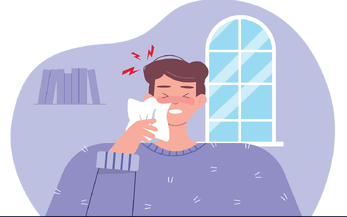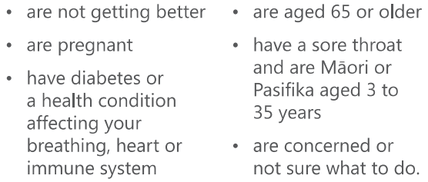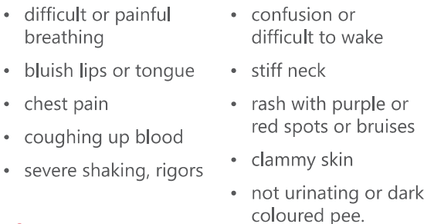Sadly, people still die from the flu and flu-related complications in Aotearoa NZ every year.
While some people are more at risk of severe illness from the flu than others -- such as pregnant people, older people, people with long-term health conditions, and very young children -- anyone can be at risk of developing life-threatening complications from the flu.
The World Health Organisation (WHO) estimates that anywhere from 290,000 to 650,000 people die around the world every year from flu-related illness.
The best protection against catching the flu, or developing serious flu-related illness, is getting your FLU VACCINE every year. See our other post about flu vaccines.
It's important to know what symptoms to look out for and when to seek medical care.
Symptoms of the flu can seem very similar to those of a cold, of COVID-19, or of other respiratory illnesses. Take a look at the table below of common signs and symptoms:
There are key red flags to look out for.
Call us for advice if you have flu-like symptoms and you:
Danger signs in pēpi and tamariki are different.
Seek medical help as soon as possible if your baby or child:
Is under 3 months old and has a fever
Won't feed or take fluids (don't force them)
Has fast or noisy breathing
Is wheezing or grunting
Sucks area below ribs inwards when breathing in rather than expanding area
Is very pale
Is drowsy or difficult to wake
Is irritable (e.g. not wanting to be held)
Is limp or can't move
Has dry nappies and/or no tears when crying (a sign of dehydration)
Has a rash
Has signs of others serious health conditions (e.g. of meningitis)
Call 111 or visit your nearest Emergency Department immediately if you or someone in your whānau have flu-like symptoms and experience ANY of the following:
These can be signs of serious illness and emergency care may be needed.
Don't hesitate to seek medical attention.
It is always better to seek medical care than to brush off symptoms and find out later that it's too late. Medical services -- GP clinics, ambulances, Emergency Departments, hospitals -- exist to help you!
See the PDF attachments for more information on the flu, self-cares, and other important and useful information.




